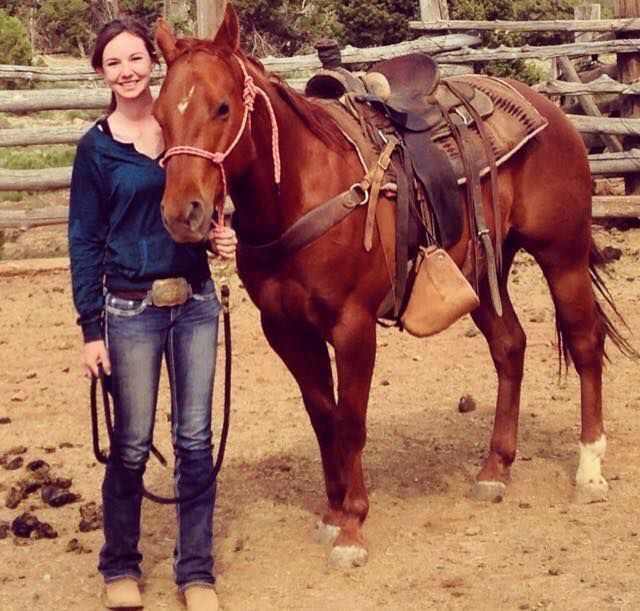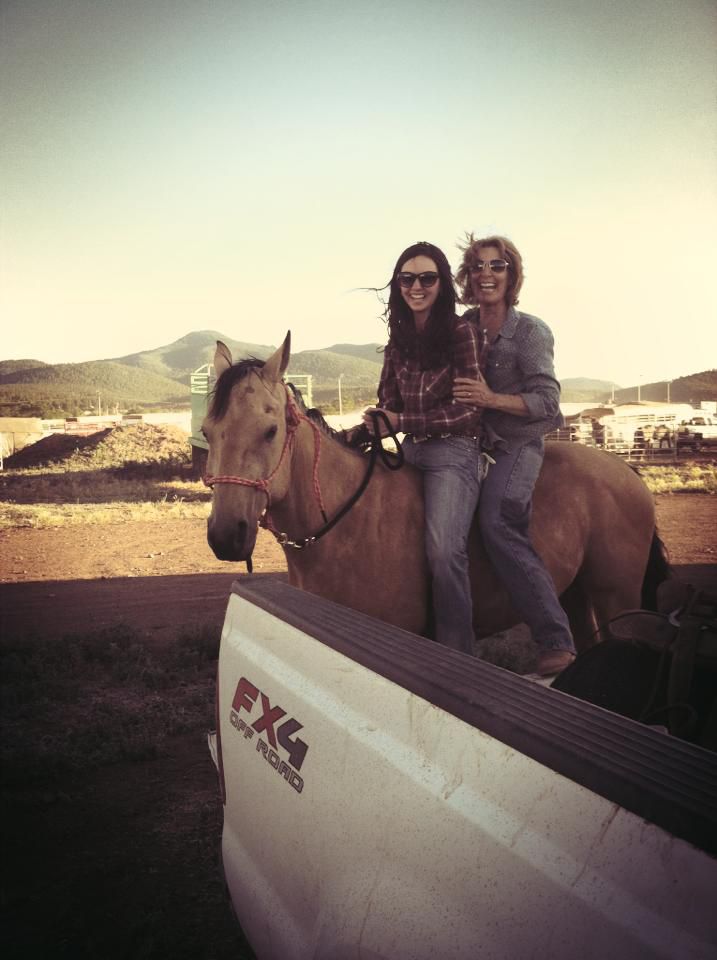Meet Arizona Agriculture's Shiew Family
Published
2/24/2015
Justen Ollendick, Arizona Farm Bureau Intern: By the year 2033, it is expected that there will not be anyone under the age of 30 in the farming or ranching industry. However here in Arizona Agriculture, I believe that statistic does not apply. The amount of millennial farmers and ranchers that have emerged in the past few years, and will be emerging in the next few years blows that statistic away. Here is just one example as Chelsea Brown of Flagstaff, Arizona tells us about her family’s legacy of ranching in northern Arizona.

An interview with Chelsea Brown, granddaughter of Jim Shiew – Flagstaff, Arizona
Part of an ongoing series about Arizona farming and ranching families.
Talk about your farm/ranch: My grandfather, Jim Shiew, started leasing the Chambers Ranch in the late 1970’s located northeast of Flagstaff, Arizona. They started their herd of cattle that has now grown to 500 mother cows. We run a cow/calf operation and take our steers/heifers to the Prescott Sale Barn in Chino Valley, Arizona. We also have a forest permit at the Young’s Canyon/Deep Lake allotment located east of Flagstaff. We take about 150 cows there every summer depending on water and feed availability. We also have a winter location to bring some cattle off of the Chambers Ranch located west of Wickenburg, Arizona. It’s been a family business; my mom, Jada, and Uncle Travis grew up working on the ranch, as did I.

Chelsea Duree Brown enthusiastically advocates for agriculture and certainly the ranching life.
What changes have you seen in your lifetime as it relates to farming and/or ranching?
Why did you choose to go into agriculture? I honestly chose agriculture because I did grow up around it. When I was younger I wanted to be a teacher but after growing up I realized I just want to manage a ranch and raise cattle.
What generation of farming/ranching are you? I’m a 3rd generation rancher. My grandparents were the first to have the ranch, but I want to continue ranching.
Will anyone in your family ... younger generation ... pursue farming and/or ranching? Since I am the youngest generation I will be pursuing ranching. But instead of just having a cow/calf operation I would like to grow it into something more. I would like to utilize the materials that we have now to educate kids and families. I would also like to sell to private buyers like small butcher shops or a family that would like grass-fed beef.
Chelsea and her grandmother, Duree Shiew, on the ranch.
What are your community activities? Why are you involved? I am on the University of Arizona college rodeo team. I’m involved in rodeo since I never got to do it as a kid. I compete in
Whenever I learn something new it helps me grow as a person. The rodeo team also does fundraisers to teach others about rodeo and to also teach them that rodeo is not cruel and that it’s an amazing experience.
I am also involved in the collegiate YF&R here at U of A and recently we went to the national Young Farmers & Ranchers convention in Nashville, Tennessee. I was able to grow my knowledge and learn new things. One session I fairly enjoyed was about the Generation Gap. My grandfather and I have different ways of thinking about how to go about something. During the
What do you think you do really well? I believe I care for people really well. Some say I care too much but I do believe it’s better to care too much than to not care at all. I believe that I learned from watching my family and also learning to care for animals.
Also with tragic events that I have had to deal with, I learned to show people I care when people showed that they cared when I needed it most. I also love to make sure everyone is smiling and having a good time. If I have to make fun of myself to get someone to crack a smile, trust me it will happen. One thing I always tell everyone especially when they are frowning is “Smile, it’ll make you live longer”…and as I say this Justen is grinning over there, laughs…
Why are you a farm bureau member? I am a farm bureau member to learn about issues and to never stop learning. I have gone to meetings to learn about issues that needed to be addressed in my
How will the next generation of farmers have to operate? We’ll have to work at teaching as many non-agriculture people as we can about agriculture. We’ll need to learn how to change with all the people in the world. More food will need to be grown whether its farmers or ranchers. We’ll need to learn how to work with the government. Having knowledge of all of the recent legislative items going on and also learn how to teach others is also key. You can never stop teaching others and